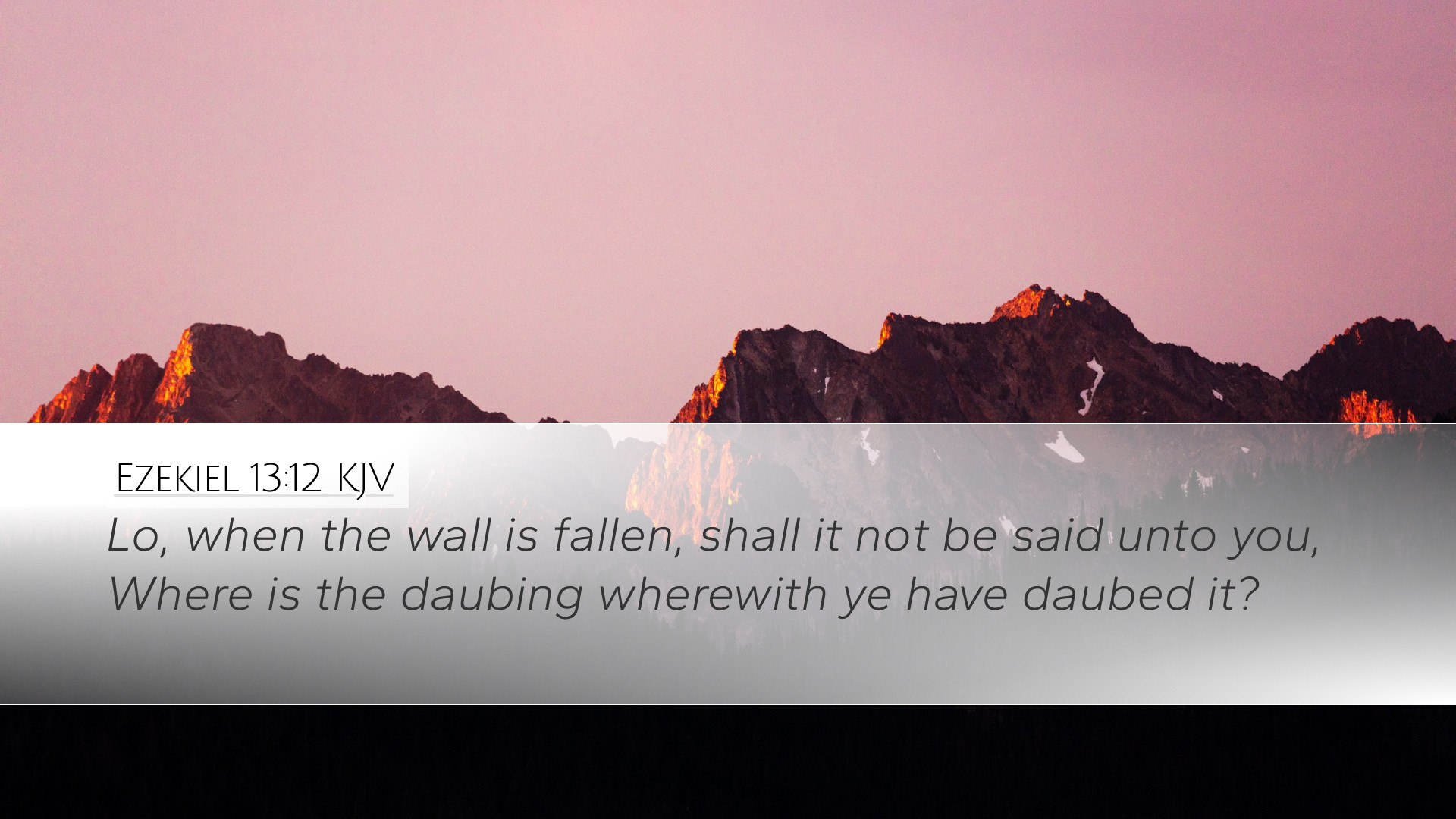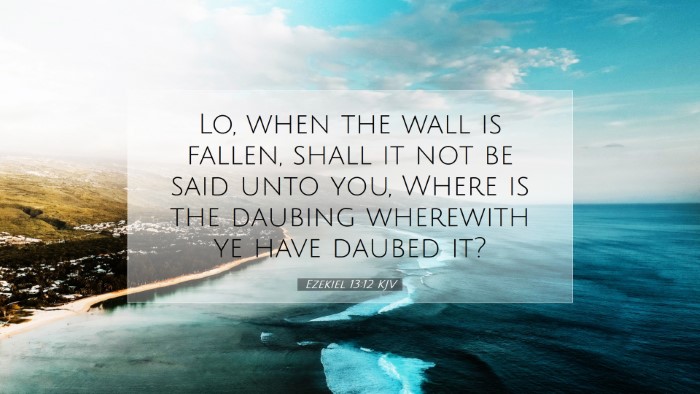Bible Commentary on Ezekiel 13:12
Bible Verse: "And lo, when the wall is fallen, shall it not be said unto you, Where is the daubing wherewith ye have daubed it?" - Ezekiel 13:12
Introduction
This verse stems from a broader context in which the prophet Ezekiel addresses false prophets and the dire consequences of their misleading words and deceptive practices. Through the imagery of a wall that has been daubed, Ezekiel critiques the superficiality of their messages that, when tested, prove to be inadequate for true protection and spiritual edification.
Interpretation
The prophet Ezekiel was tasked with delivering God’s messages during a tumultuous time for Israel. This particular verse serves as a potent metaphor. The wall represents the spiritual and moral defenses that are meant to protect the people of Israel, while the daubing symbolizes the false assurances provided by the prophets who distort God’s words for their gain.
Symbolic Significance of the Wall
Matthew Henry emphasizes the importance of walls as metaphorical barriers that provide security. In ancient times, a wall indicated safety from external threats. However, a wall that is insufficiently constructed or poorly maintained signifies impending disaster. Here, the wall in question is about the spiritual integrity of the people.
Layer of Daubing
Henry also notes the "daubing" as a reference to the superficial fixes offered by false prophets. They engage in a form of spiritual charlatanry, covering up deeper issues with plasters that will ultimately fail. Albert Barnes further elaborates that the daubing represents false hopes and assurances that God did not provide, which are unacceptable remedies for the real dangers facing the Israelites.
The Role of the False Prophets
These prophets, under the pretense of spiritual leadership, lead the people astray. Adam Clarke highlights that they claim to speak on God’s behalf while promoting messages of peace and safety. Their teachings lack substantive truth, thus hiding the reality of the people's sins and their need for genuine repentance.
Consequences of Deception
The core of Ezekiel’s message is one of warning. The fallen wall signifies judgment and destruction. When the wall collapses, the false prophets will be confronted with their failure, as articulated by Henry. The rhetorical question posed, "Where is the daubing?" indicates that in the face of calamity, the hollow assurances they peddled will evaporate.
Theological Implications
In viewing this passage through a theological lens, one recognizes God's desire for truth and authenticity in worship. False security bred from lies leads ultimately to judgment, reaffirming the need for true prophetic voices in the community. The call is towards a deeper righteousness and faithfulness to God’s instructions, as emphasized by Barnes.
Application for Pastors and Theologians
This verse bears significant relevance for contemporary church leaders and theologians. It serves as a reminder to be vigilant against messages that may appear comforting but lack divine authenticity. The implications for pastoral ministry are profound, calling for leaders to ensure that their teachings are firmly rooted in Scripture and that they lead their congregations towards true repentance and spiritual integrity.
- Authenticity in Leadership: Pastors must prioritize sound doctrine and eschew the temptation to offer feel-good slogans at the expense of the truth.
- Spiritual Accountability: Encourage congregants to discern the truth of God's Word for themselves, avoiding the pitfalls of relying solely on charismatic leaders.
- Community Wisdom: Foster a culture of accountability within church communities that values speaking truth despite the potential discomfort it may bring.
Conclusion
In summary, Ezekiel 13:12 serves as a timeless reminder of the peril of falsehood clothed in spiritual garb. The collapse of the wall symbolizes not only the failure of human-led safety but also the ultimate exposure of deceptive spiritual practices. It calls both pastors and congregations to a return to biblical foundations, emphasizing the need for genuine faith that withstands trials and tribulations.


